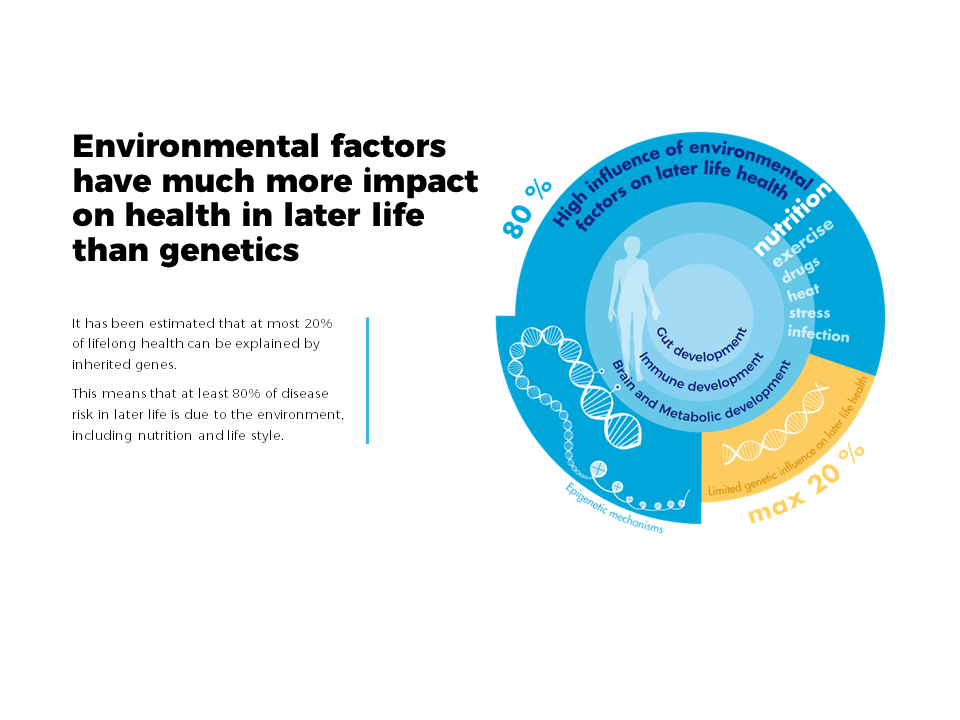The first weeks and months of our lives are a period of rapid growth and development, a time when our organs and tissues are forming and learning their respective roles. A time of growth unlike any other in our lives, this period offers a critical window of opportunity to shape our life-long health.
Nutrition plays a crucial role during this phase of life. An increasing body of evidence suggests that poor nutrition during the first 1000 days of life may increase the risk of developing non-communicable diseases, such as asthma, diabetes, obesity and heart disease, later in life. Hence adequate nutrition during pregnancy and the first two years of life has a profound effect on a child’s development.

A complex interplay between our genes and the environment shape our individual development. Interestingly, it has been estimated a mere 20% of our lifelong health can be explained by the genes we inherit. This means that at least 80% of the risk of disease in later life is due to environmental factors, including nutrition and life style. More importantly, evidence seems to suggest the way we develop during early life can influence the way we respond to external stimuli later in life.

The journey through the first 1000 days
The first 1000 days of our life, from conception through to our second birthday, is a period of rapid growth and development.1Gluckman and Hanson. Published on 2004 During this time our body has very specific nutritional needs; the right nutrition is crucial to fuel optimal development of systems and organs, which are formed and continue to develop, their functions still maturing.

Nutrition in early life impacts physical growth, cognitive development, immune maturation, development of digestive systems and development of healthy eating habits.2Hooper, et al. 2001 , 3Godfrey, et al. 2007 At Danone Research & Innovation, we aim to provide optimal nutrition for each stage of development to support a healthy start in life.



